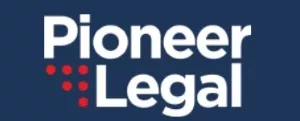Start-ups and small companies in India are always on the lookout for viable sources of capital. At the same time, small investors are interested in diversifying their portfolios and betting on promising new ventures. This has led to the mushrooming of many platforms offering companies an opportunity to connect with investors to crowdsource their funding goals.
Equity crowdfunding is not explicitly regulated under Indian law. In light of this, the platforms have taken a considered view that so far as they and the companies using them comply with the provisions of the Companies Act, 2013 and the applicable SEBI regulations, their activities would be permissible. Afterall, most such platforms merely act as technology intermediaries connecting the investors and the companies with each other.
However, a couple of recent orders passed by the Registrar of Companies, NCT of Delhi and Haryana ("ROC") in the matter of Anbronica Technologies Private Limited and Septanove Technologies Private Limited ("Companies") have put this model of raising funds through crowdfunding under the scanner.
Background:
- Tyke is a technology based community platform ("Tyke") which enables companies seeking investment to run a fundraising campaign on the platform to connect with potential investors registered on Tyke ("Tyke Members"). Such Tyke Members may comprise of professionals, corporate executives and individuals looking to make investments. Tyke also provides certain other services to facilitate the campaign and charges a fees from the companies for the usage of the platform.
- The Companies had initiated fund raising campaigns on Tyke. Pursuant to communication of interest from certain Tyke Members, the Companies issued and allotted compulsorily convertible debentures ("CCDs") to about 28 and 196 such members on a private placement and preferential basis raising approximately INR 12,50,000 and INR 32,51,000
- The ROC however issued a show cause notice to both the Companies on December 27, 2022 contending that the aforesaid issuance and allotment of CCDs were actually in contravention of the Act and asking both the Companies and Tyke to explain the model adopted for this fund raise.
- The Companies clarified that Tyke was only used by them as a platform for garnering interests from Tyke Members. Tyke was not used to invite the public to subscribe to securities of the Company nor to inform the public at large about the private placement offer being issued by the Company.
- The representative of Tyke also walked the ROC through the process followed by companies registering themselves on the platform and the steps involved in running a fund raising campaign on the platform. Tyke indicated that the platform currently boasted about 1.5 lakh Tyke Members. Tyke also clarified that its terms of use put the onus of ensuring compliance with the provisions of the Act on the companies using the platform for seeking funding. Further, nothing on the platform was intended to constitute an offer or solicitation of an offer to purchase or sell any securities.
ROC Observations:
- The ROC has held that the use of platforms like Tyke by companies raising funds would, in effect, constitute a contravention of Section 42(7) of the Act. As per Section 42(7), no company issuing securities under Section 42 is allowed to release any public advertisements or utilise any media, marketing or distribution channels or agents to inform the public at large about such issue.
- The ROC did not accept the argument of the Companies that Tyke was just a technology platform, noting that Tyke cannot be relegated to a mere intermediary, but instead it was an active facilitator allowing the companies to raise investments through its portal and it is providing end-to-end services to the companies.
- The ROC further held that Section 42 of the Act read with Rule 14 of the Companies (Prospectus and Allotment of Securities) Rules, 2014 ("PAS Rules") prescribes a limit of 200 persons who can ultimately subscribe to the securities of such company. But this limit of 200 persons also applies to the maximum number of persons to whom an offer or an invitation to offer can be made for subscribing to the securities of the company.
- As a campaign on the platform ostensibly includes an offer or an invitation to offer to all the members of the platform (which, in Tyke's case was about 1.5 lakh persons), the campaign would be in contravention of the above restrictions. Further, the fact that the information in relation to the campaigns was, until recently, visible to all visitors to the Tyke website and was not restricted only to members who had logged in, was a cause of concern separately flagged by the ROC.
- Lastly, a campaign on the platform allows all members of the platform to indicate interest in the company by transferring the investment amount to an escrow account usually managed by the platform on behalf of the company. While the company may only allot securities to a maximum of 200 persons in compliance with the Act, more than 200 persons can potentially apply to this campaign allowing the campaign to be "oversubscribed", again falling afoul of Rule 14 of the PAS Rules.
Order:
- The ROC has held the Companies to be in contravention of the provisions of Section 42 of the Act and imposed penalties on the Companies, its directors and promoters as per Section 42(10) of the Act1. However, since the Companies constitute "small company" under the Act, the penalties were reduced to INR 1 to 2 lakhs pursuant to Section 446B2 of the Act.
- Quite interestingly, the ROC also noted in its order that even though it considered Tyke to have facilitated the default by the Companies, they have not been able to prosecute Tyke as Section 42 of the Act did not provide for any penalty which could be imposed on any person other than the company, its promoters and directors.
Conclusion:
- Most crowdfunding platforms largely follow the same model for their operations. While the platforms themselves seem to not be directly liable under the Act, if the companies undertaking the campaign are deemed to be in contravention of the Act, the same will ultimately impact the manner in which such platforms operate.
- In short-term though, the platforms will definitely have to review their existing operational framework, internal norms and their role to ensure compliance with the provisions of the Act and Rules. Further, any issuance of securities in contravention of Section 42 of the Act is deemed to be a public offer resulting in the issuer having to comply with the provisions of the Securities (Contract) Regulation Act, 1956 and the SEBI Act, 1992. This may make such companies also subject to further regulatory action and scrutiny by SEBI. It will be interesting to see whether this ROC order is further appealed by either of the Companies.
- Another interesting point to note is that as per Section 42(10) of the Act, in addition to the penalty, the company in default is also required to refund all the monies raised by it in contravention of Section 42 within a period of 30 days of the order. However, surprisingly the present order is conspicuously silent in regard to such refund. It is unclear whether the ROC has a discretion to only impose a penalty without requiring refund of amounts. Or whether only the penalty has been imposed as the ROC has read Section 446B of the Act to supersede the entirety of Section 42(10).
- Lastly, since the days of SEBI's consultation paper on crowdfunding in India back in 20143, SEBI has been concerned with the companies misusing the private placement route to issue a huge number of debt securities to public under the garb of private placements. While SEBI has acknowledged the usefulness of the crowdfunding model, it has still been wary of the same considering a lack of regulatory framework, oversight and potential for investor abuse. However, it has been almost a decade and the regulator seems nowhere close to coming up with a viable framework for crowdfunding.
- This overall ambiguity is not helpful for anyone. Platforms providing crowdfunding solutions will not be able to scale up if they are going to constantly be afraid of regulatory action. This will also scare aware potential investors and affect the burgeoning startup ecosystem in the country.
- Written by Anupam Shukla (Partner), Vedika Shah (Associate) and Shreya Masalia (Paralegal)
Footnotes
1. Section 42(10): "Subject to sub-section (11), if a company makes an offer or accepts monies in contravention of this section, the company, its promoters and directors shall be liable for a penalty which may extend to the amount raised through private placement or two crore rupees, whichever is lower and the company shall also refund all the monies with interest as specified in sub-section (6) to subscribers within a period of third days of the order imposing the penalty."
2. Section 446B: "Notwithstanding anything contained in this Act, if penalty is payable for non-compliance of any of the provisions of this Act by a One Person Company, small company, start-up company or Producer Company, or by any of its officer in default, or any other person in respect of such company, then such company, its officer in default or any other person, as the case may be, shall be liable to a penalty which shall not be more than one-half of the penalty specified in such provisions subject to a maximum of two lakh rupees in case of a company and one lakh rupees in case of an officer who is in default or any other person, as the case may be."
3. https://www.sebi.gov.in/sebi_data/attachdocs/1403005615257.pdf
The content of this article is intended to provide a general guide to the subject matter. Specialist advice should be sought about your specific circumstances.




